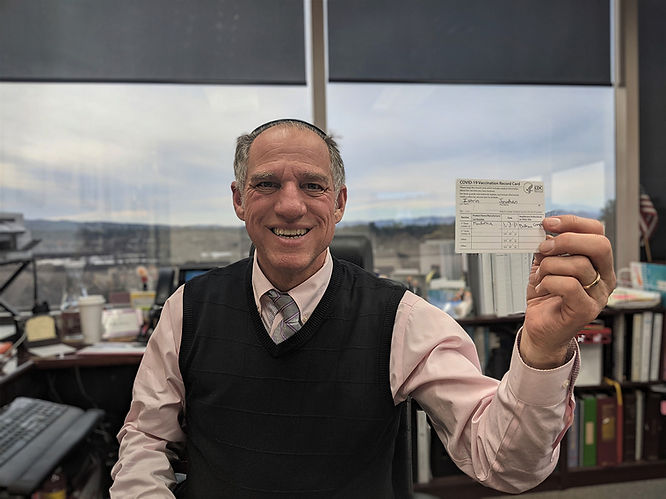
National Immunization Awareness Month

In 1796, Edward Jenner led the first scientific test of a potential smallpox inoculation. This research ultimately led to the smallpox vaccine. Jenner referred to smallpox as “the most dreadful scourge of the human species.” While it would be decades until his research was scaled and safely developed for widespread distribution, his scientific ingenuity earned him the moniker of “the father of immunology” and his work is said to have “saved more lives than the work of any other human.” Smallpox is estimated to have killed up to 300 million people in the 20th century. Through Jenner and other’s scientific research, innovation, public awareness, and the vaccine’s mass distribution, smallpox was finally eradicated in 1977. Without vaccinations, this ruthless, deadly disease would still threaten our global community. With immunization, smallpox is now a piece of history and not a present-day threat.
The eradication of smallpox is just one example of many, of eradicated diseases. They’ve been eradicated for one reason – immunization.
This month is National Immunization Awareness Month (NIAM). It’s a perfect time for us all to remember the profound impact vaccinations have had on our society. And that the safety and security they’ve provided should not be taken for granted. Vaccination adoption and awareness are imperative from people of all ages to ensure a healthy, thriving society.
The New England Journal of Medicine (NEJM) declared vaccines among the most effective health care innovations ever devised. Since 1924 alone, NEJM estimates that 103 million cases of polio, measles, rubella, mumps, hepatitis A, diphtheria, and pertussis have been prevented by vaccines. While it may be difficult for us to comprehend diseases and viruses that haven’t spread, it’s vital to recognize the immense role immunizations have played in protecting our communities.
Vaccines don’t only prevent premature death, they also substantially reduce hospitalization rates, as well as the sheer unpleasantness of being affected by disease.
With COVID-19, conversations about vaccines have become commonplace. And while the COVID-19 vaccines are vital for personal and community health in the current moment, vaccinations against all preventable disease should always be a public priority, pandemic or not.
From early-childhood vaccines against polio, measles, rubella, and mumps to adult seasonal flu shots and specific travel immunizations, vaccines keep us safe as individuals, protect our loved ones, and ensure our communities can live free from the fear of preventable disease.
A few notes below about responsible immunization health.
You have the power to protect against vaccine-preventable diseases
Parents can ensure their children and babies are vaccinated with all available immunizations are shielded from serious diseases like the whooping cough and seasonal flu. Adults can protect themselves against shingles, pneumonia, and the seasonal flu as well. Be sure to ask your doctor, nurse, or healthcare professional about the vaccines you may need for your age, health conditions, or job.
Vaccines are safe and effective.
Health professionals and public individuals can help spread immunization awareness. Be sure to communicate clearly and transparently about the historical impact, safety, and effectiveness of immunizations. Vaccines work in tandem with your body’s natural defenses to stave off diseases and build protection. Like most medical products, vaccines can carry potential side-effects. The most common of which are incredibly mild and short-lasting. Side-effects from immunizations are a welcome tradeoff when the alternative is being at risk for harmful disease.
Staying up-to-date on vaccinations is paramount. And they remain the greatest safeguard in keeping our communities safe from preventable disease.
Many serious diseases are no longer common in the United States. This is mostly due to the effectiveness and wide adoption of immunizations. Just because many diseases are less common in our society today, they still exist and can spread if people aren’t vaccinated. Even today, thousands of adults in the U.S. are hospitalized because of diseases that vaccines can prevent. Don’t be one of them.
You can use this month to re-prioritize your health and your family’s health – beginning with responsible immunization. You should talk to our doctor, nurse, or healthcare professional to ensure you and your family are up to date on recommended vaccines. Only you have the power to protect yourself and your family against serious diseases. Immunizations save lives. Let’s all commit to keeping our communities safe and healthy with proper vaccinations.

